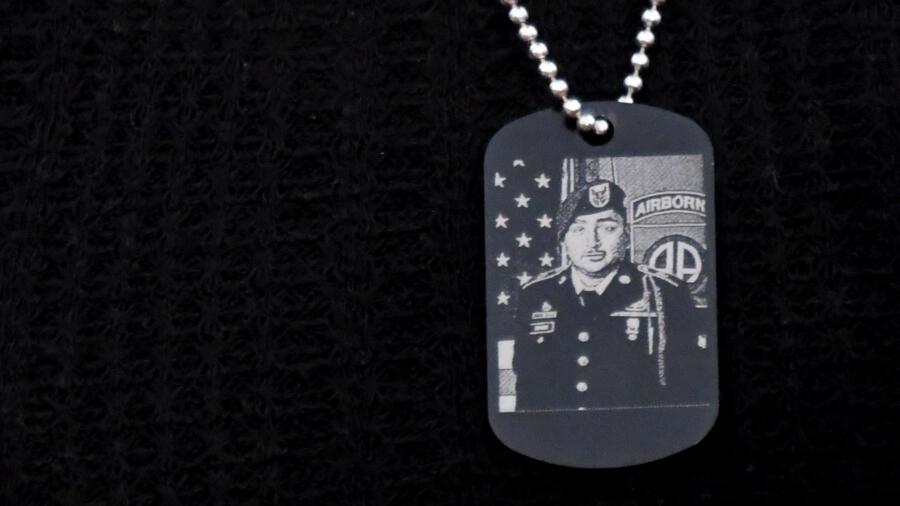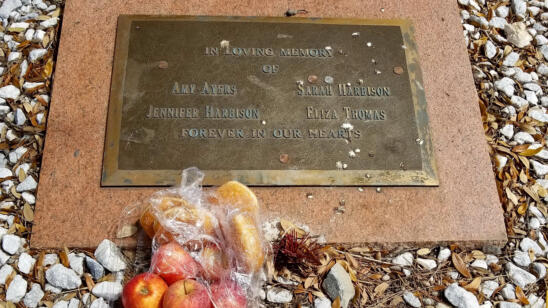Warning: The following contains disturbing descriptions of violence. Reader discretion is advised.
The death of a U.S. Army soldier whose severed head washed ashore in North Carolina in 2020 remains unsolved, although three fellow soldiers who last saw him alive were charged with various crimes.
Spc. Enrique Roman-Martinez, 21, of Chino, California, was last seen May 22, 2020, while camping over Memorial Day weekend with seven other soldiers on South Core Banks, one of two barrier islands of Cape Lookout National Seashore. All were stationed at Fort Bragg, North Carolina.
His fellow soldiers reported his disappearance the next day. His head was found six days later, but the rest of his body still hasn’t been located.
The medical examiner said it couldn’t definitively say whether decapitation was the cause of death or if he died another way, but the findings “are most consistent with death due to homicide,” North Carolina’s News & Observer reported.
Army officials said thousands of hours were spent investigating the death of Roman-Martinez, a paratrooper with the 82nd Airborne Division. The Army has offered a reward of $50,000, increased from an initial $25,000, for credible information concerning the circumstances of his death.
Roman-Martinez’s family has been anguished and frustrated since he’s been gone, his older sister, Griselda Martinez, tells A&E True Crime.
“I just want to know why. Why my little brother? He was a sweet kid. He would take his shirt of his back for everybody,” she says. “I am suffering, but it’s nothing compared to what my mom is going through. This was her baby.”
Many questions remain about the behavior of the soldiers who went camping with Roman-Martinez and the sequence of events the weekend he disappeared.
The soldiers said they last saw him around midnight the night he vanished. His wallet, phone and glasses were found in the tent.
The soldiers didn’t report Roman-Martinez missing when they ran into a park ranger the next day, Army Times reported. It was only hours later that they made a 911 call to report him missing.
The soldier who made the 911 call, Spc. Alex Becerra, told the dispatcher that Roman-Martinez had suicidal tendencies and might have hurt himself.
But his sister said she’d spoken with her brother a few days before and there was no truth to that. Becerra now faces charges of conspiracy, disobeying a superior officer, failure to obey an order, making a false statement and wrongful use, possession or manufacturing of a controlled substance, Rolling Stone reported.
Two other soldiers, Pfc. Samad Landrum and Pvt. Annamarie Cochell, are accused of using LSD the night that Roman-Martinez died, violating Fort Bragg’s COVID-19 travel rules and conspiring with unnamed people to make a false statement the day Roman-Martinez was reported missing, Army Times reported.
Becerra, Landrum and Cochell will face a general court-martial. Their charges, however, are unrelated to the cause of Roman-Martinez’s death, which remains unsolved, a spokesman for the 82nd Airborne Division said.
Roman-Martinez joined the Army at 17 and worked as a human resources specialist at Fort Bragg. He loved to jump out of airplanes and was a hard worker who often put in extra time on weekends, according to his sister.
“I’ve never really seen my brother angry,” Griselda Martinez says. “He was just very sensitive. He was very funny, he loved to make jokes. He was incredibly giving and generous.”
Her brother enjoyed his first couple of years in the Army, but then started becoming disillusioned, complaining about coworkers and superiors, Martinez says. “At various times he wanted to get out. I always asked why, and he said, ‘Oh, you wouldn’t understand.'” Martinez has been frustrated with the lack of progress in the homicide investigation, but the recent charges against the three soldiers give her hope that more information related to her brother’s death will come out.
U.S. Rep. Norma Torres, who represents California’s 35th District, has been speaking out on behalf of Roman-Martinez’s family by asking the Army for investigation updates and encouraging the public—including the mothers of the seven soldiers he went camping with—to come forward with any information.
“The fact that there is still no real answer to the family is such an injustice to me,” Torres tells A&E True Crime. “It’s simply heartbreaking.”
Torres says she’s “very unhappy” that the Army didn’t act more quickly in launching its investigation into the disappearance of Roman-Martinez, a young man dedicated to country and service.
“It took almost 17 hours to report him missing. That in itself just brings so many questions,” Torres says.
Also, according to Torres, the Army initially treated the disappearance as if Roman-Martinez had gone AWOL [Absent Without Leave].
“We lost critical time in potentially finding evidence,” Torres says, adding that the rainy weather the weekend of his disappearance also hindered efforts. “It’s hard to come to a conclusion as why this was not taken more seriously.”
After the Army’s criminal investigation division (CID) was notified May 25, 2020 (three days after Martinez was last seen), an investigation was launched “immediately” and agents were on location the next morning, Ronna Weyland, public affairs specialist for the Army’s Criminal Investigation Division, tells A&E True Crime. A task force with CID special agents, FBI personnel and the FBI’s behavioral analysis unit conducted more than 400 interviews and submitted more than 100 items for analysis during the 18-month long investigation, Weyland says.
“CID and other task force member agencies expended thousands of hours of investigative effort and reached a point where there were no unaddressed investigative leads… and no viable leads being developed,” Weyland says.
The investigation is now labeled a cold case, and CID continues to investigate Roman-Martinez’s death “using well established cold case protocols and techniques,” Weyland says. Those include “periodic reviews of evidence to determine if new technology or new investigative techniques may be applied to existing evidence, continued efforts to develop tips from the public and consultation with subject matter experts within the law enforcement community,” Weyland says.
Any new leads will be aggressively pursued, she adds.
Torres and Roman-Martinez’s family also complained of poor communication from the Army.
“When it comes to the Army and their military personnel, they hold those investigations very close and it’s hard to get them to share information,” Torres says.
An important question, Torres notes, is which agency should have jurisdiction when crimes involving military personnel take place outside military bases.
“In this case, the Army took over the investigation. I question that,” Torres says. “I wonder if the local park rangers or the local authorities might have been able to have more knowledge into the landscape, for example.”
Torres asked the Department of Defense Office of Inspector General to review the Army’s investigation and submit its feedback to Congress about it, as well as potential improvements for future investigations.
The congresswoman says she continues to urge anyone who saw anything of interest during that May 2020 weekend in North Carolina to come forward.
“The family right now could really use the help of the community,” Torres says. “This could very well be our brother or sister or son.”
The Army also is asking anyone with information to please come forward, regardless of how trivial the information may seem, Weyland says.
Anyone with information should contact Army CID Special Agents at (910) 396-8777 or the Fort Bragg Military Police Desk at (910) 396-1179. Information can be reported anonymously on the CID’s website.
Related Features:
17 Unsolved Murders That Could Use Help From Citizen Detectives
How a Group of Active and Retired Homicide Investigators Anonymously Solve Cold Cases
The Death of Sandra Denise Thomas: A Small Town Tries to Crack a Cold Case


